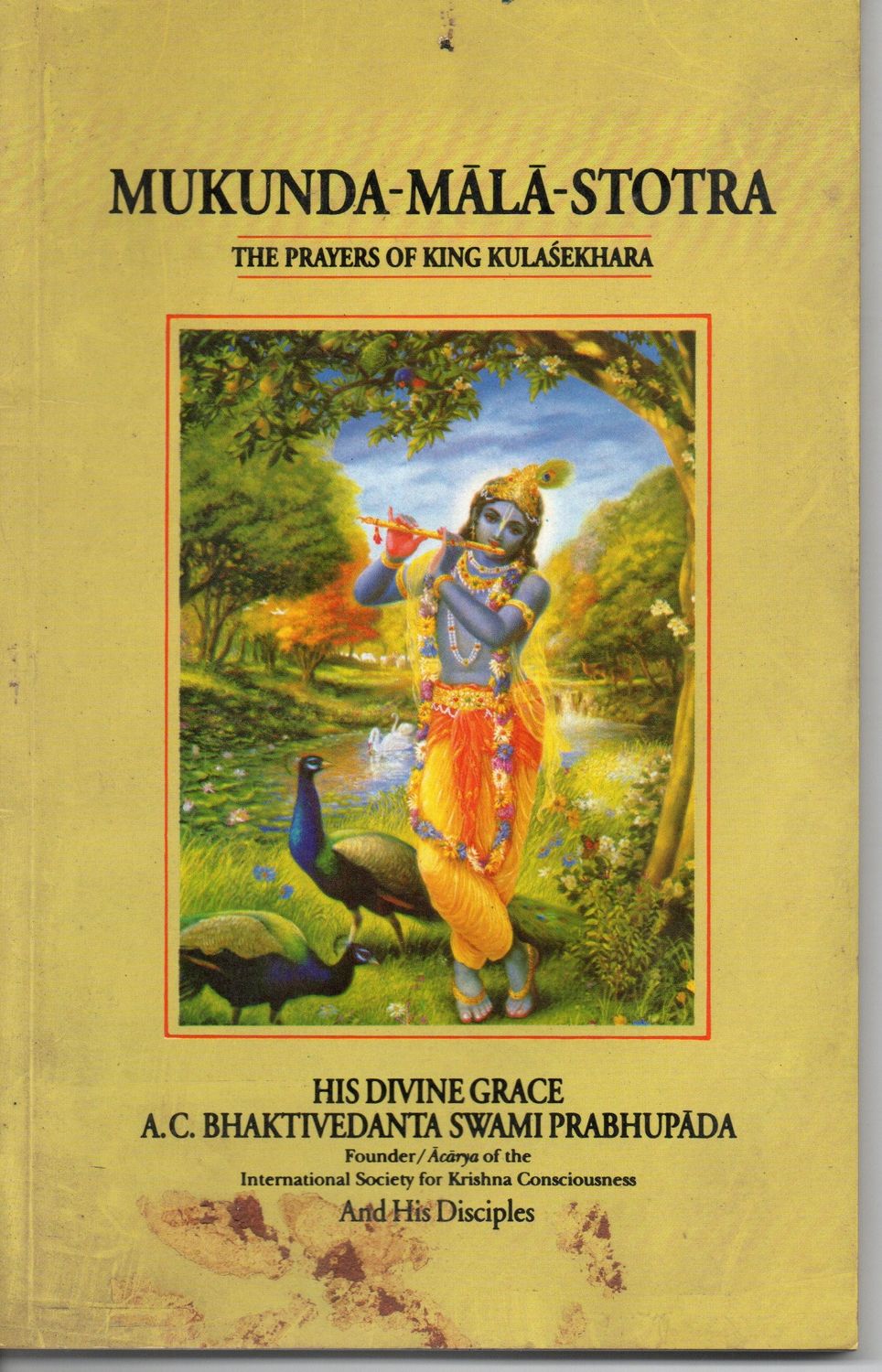Mukunda - Mala - Stotra "The Prayers Of King Kulasekhara (English) Old Book
The Mukunda-Mala-Stotra (or "The Prayers of King Kulasekhara") is a revered devotional Sanskrit poem composed by King Kulasekhara, a saintly ruler from medieval South India. It is a profound expression of a devotee's intense love for Lord Krishna (who is addressed as Mukunda, "the giver of liberation").
About King Kulasekhara
King Kulasekhara was a ninth-century ruler of the Chera dynasty. Though he was a powerful and successful king, he was not attached to his royal opulence. He was a great devotee of Lord Vishnu and is considered one of the twelve Vaishnavite saints known as the Alvars in South Indian tradition. His devotion was so strong that he eventually abdicated his throne to dedicate his life entirely to spiritual pursuits. The Mukunda-Mala-Stotra is a beautiful reflection of this deep, inner spiritual life.
Key Themes of the Prayers
The stotra is a powerful and emotional plea from the heart of a pure devotee. Its key themes include:
- Intense Longing for Devotion: The central theme is the king's fervent desire to always remember Krishna. He prays not for material wealth, heavenly pleasures, or even liberation from the cycle of birth and death, but for the one thing he truly cherishes: unbroken, unflinching devotional service to the Lord's lotus feet, birth after birth.
- The Inevitability of Death and the Urgency of Spiritual Life: Kulasekhara repeatedly reflects on the fleeting nature of material life and the certainty of death. He prays that he may remember Krishna at the final moment, recognizing that this is the only way to escape the miseries of the material world.
- Renunciation of Material Pleasures: The king explicitly states that he has no attachment to religiosity, economic development, or sense gratification. He considers these to be insignificant compared to the divine bliss of devotion to Krishna.
- Glorification of the Holy Names: The stotra is a powerful celebration of the names of Lord Krishna. Kulasekhara addresses the Lord with many of his divine names (Mukunda, Sri-vallabha, Dayapara, Bhakta-priya), glorifying his qualities of mercy, love, and protection.
- The Superiority of Bhakti (Devotion): The prayers implicitly argue that devotion to the Lord is the most direct and effective path to spiritual enlightenment. The king shows that other spiritual practices, without the element of pure love for God, are ultimately fruitless.
The Significance of the Stotra
The Mukunda-Mala-Stotra is a timeless piece of devotional literature that has been cherished by Vaishnavas for centuries. Its simple, heartfelt language and profound philosophical message make it accessible to everyone, regardless of their background. It serves as a guide for all sincere seekers, teaching them to turn away from the temporary allure of the material world and to focus their love and energy on the Supreme Lord, Mukunda, the giver of true liberation.

